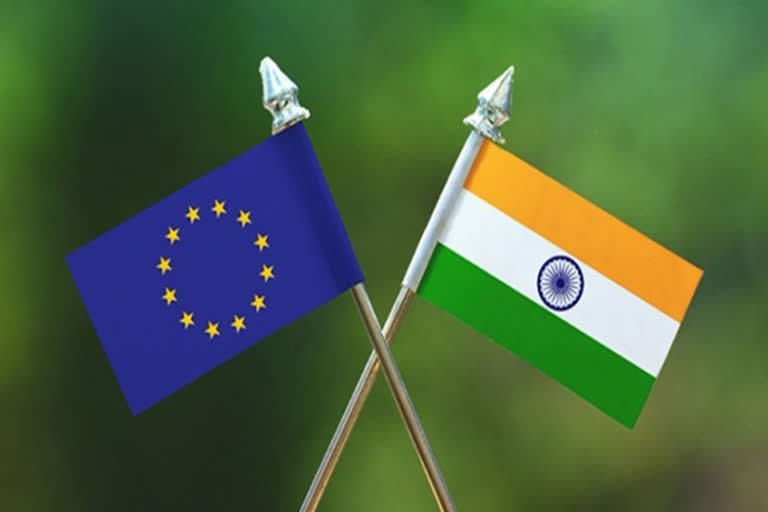New Delhi: Capping 13 years of negotiations, India and the European Union have finalised a framework agreement on cooperation in the civil nuclear sector ahead of their online summit on Wednesday, officials of the 27-nation bloc said.
In the summit, the two sides are expected to unveil a five-year roadmap to further broad-base ties, launch a separate dialogue on maritime security and for boosting trade and investment besides kicking off a process for effective cooperation between the CBI and Europol, they said.
The Indian delegation at the summit will be led by Prime Minister Narendra Modi while the European side will be headed by President of the European Council Charles Michel and President of the European Commission Ursula von der Leyen.
The 27-nation EU is a strategically important region for India. The EU as a whole was India's largest trading partner in 2018. India's bilateral trade with the EU in 2018-19 stood at USD 115.6 billion with exports valued at USD 57.17 billion and imports worth USD 58.42 billion.
The EU officials said an announcement on firming up of the civil nuclear cooperation agreement will be made during the summit on Wednesday. The pact provides for extensive cooperation in the civil nuclear energy sector.
They said both sides are expected to finalise an agreement between Europol and the Central Bureau of Investigation (CBI) on having a working arrangement to deal with organised crime and terrorism. The Europol is the EU agency for law enforcement cooperation.
Also read:Under shadow of 'secret' Iran-China pact, India left out of Chabahar rail project
The officials said both sides are also expected to launch a maritime security dialogue as part of efforts to expand defence and security cooperation.
On the long-pending India-EU free trade agreement known as EU-India Broad-based Trade and Investment Agreement (BTIA), the officials said the current trade relationship between the two sides was below its potential and far less than what the bloc expects.
In the context of the stalled talks on the FTA, the officials talked about "India's protectionist approach" on tariffs and reservations on opening up its services sector, adding New Delhi is also not showing interest in trade with sustainable development.
Asked whether the EU was looking at a limited trade pact with India, the officials said the bloc was not looking at such an option and that it was for a comprehensive trade agreement.
Launched in June 2007, negotiations for the proposed agreement have witnessed many hurdles as both sides have major differences on crucial issues.
